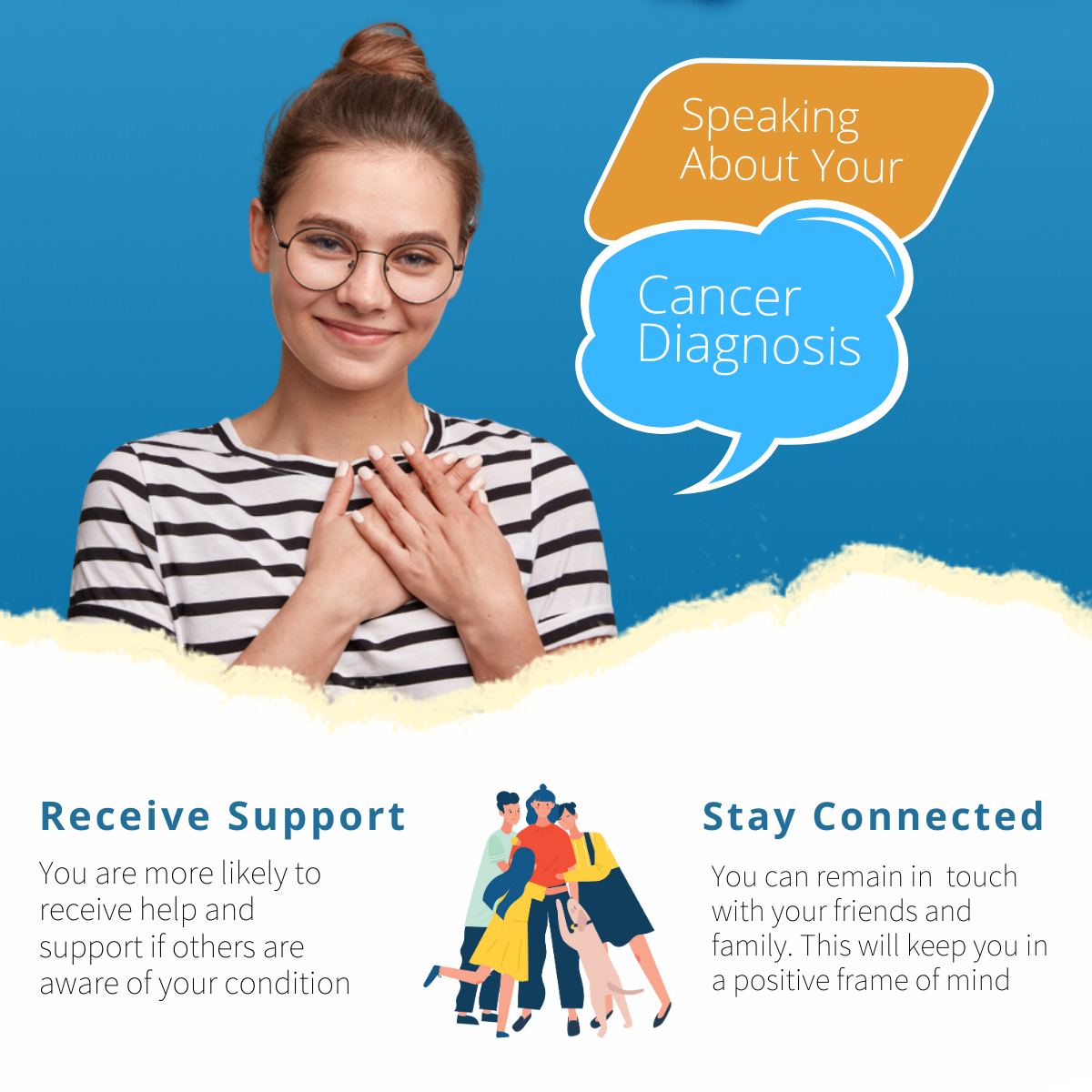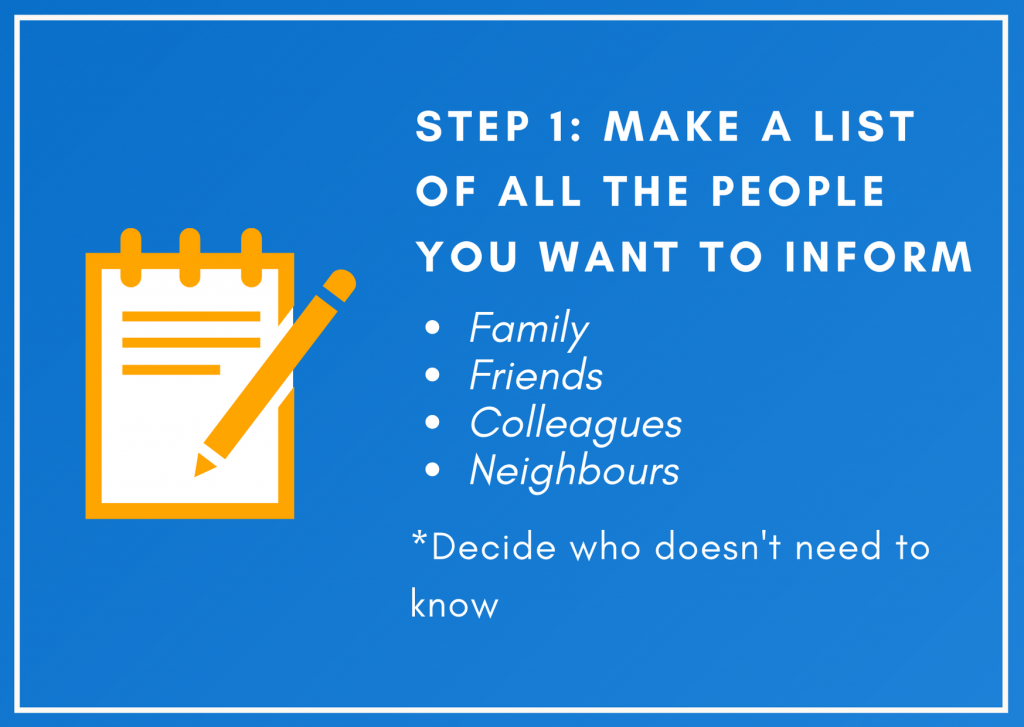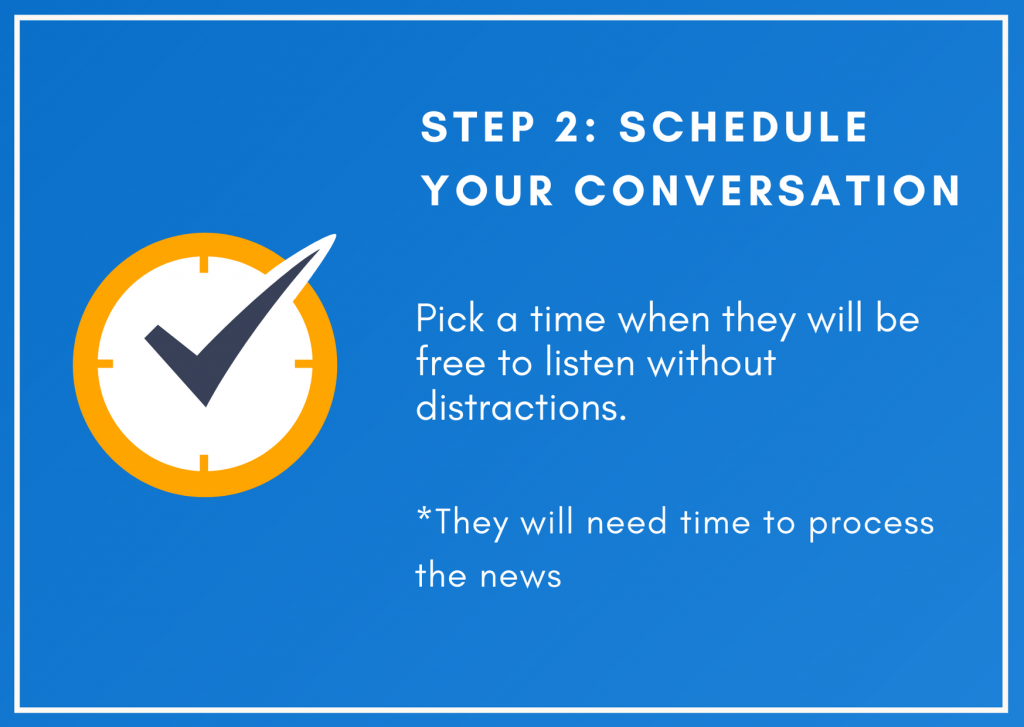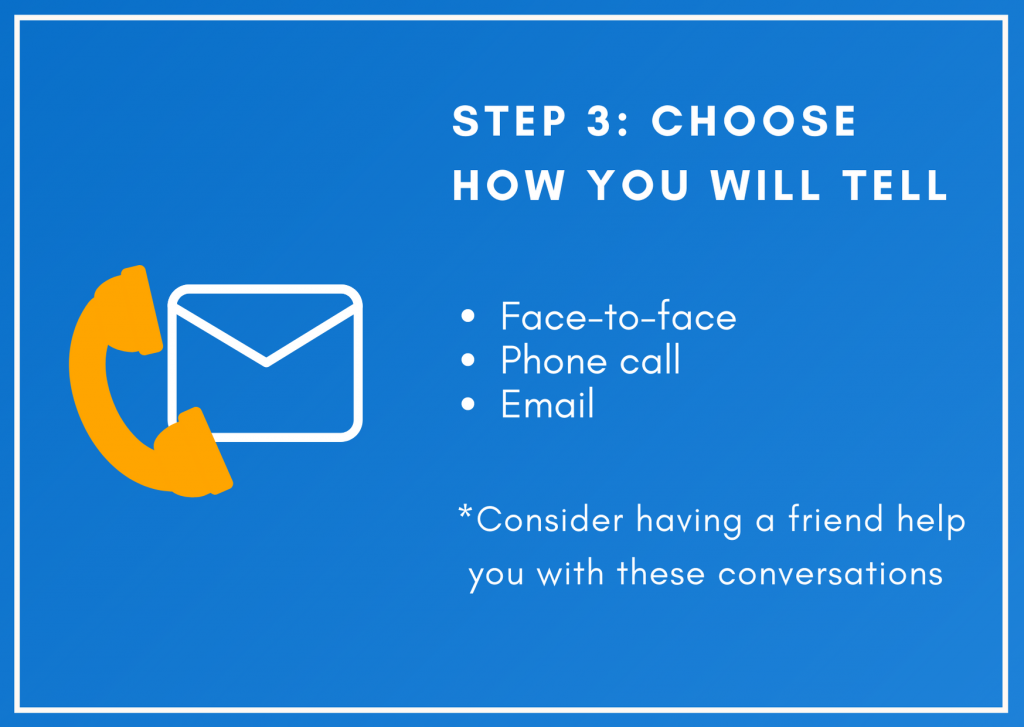No matter what the type or stage, all cancer patients face one common dilemma: ‘should I share my diagnosis with others?’
In India, many cancer patients and their families choose to keep the diagnosis a secret. The reasons for this are manifold.
In certain societies, there is less awareness of the causes and the treatments for cancer. This leads to several misconceptions around this disease and consequently, there is a stigma attached to it.
To escape this, some people and their caregivers prefer to keep their cancer journey a secret, offering excuses for any visible signs of cancer, and made-up alibis for hospital visits.
Advantages of sharing
Before you decide that you want to keep your diagnosis a secret, you may want to also consider the benefits of sharing your diagnosis with your extended family and friends.
-
Taking control
The treatment of cancer spans across a few months. Apart from the symptoms, which include body pains and fatigue, the treatment itself can have side-effects like hair fall, weight loss, darkening of skin, etc.
To hide such signs over many months is not just cumbersome but also futile. Your energy needs to be reserved for recuperating from the treatment, rather than for hiding your diagnosis from others.
-
Receiving support
During your treatment, it is likely that you are unable to function as you used to prior to your diagnosis. For the duration of your treatment, you deserve to get a little more help and understanding from those around you. You may not receive this if those around you – your friends, family or colleagues are unaware of your medical condition.
To reduce the stress on yourself, it may be in your best interest to let them know what you are currently going through. That way, they are more likely to cooperate and make adjustments to accommodate your requirements for rest and recovery.
-
Avoiding misunderstandings
It is possible that you may not be able or willing to attend certain social commitments during your treatment. For example, if you are tired after a session of chemotherapy, you may want to skip a family get-together or an invitation to dinner.
Repeated and unexplained absences may cause misunderstandings to crop up as they are unaware that you are currently battling a disease.
Inspite of the above benefits, you may still choose not to share your diagnosis with anyone. But if you do decide to go ahead and share it with others, here is some information to help make the process a little bit easier for you.

Brace yourself for the reactions
The first step is to accept that not everyone will react positively to the news. While some might offer you their support and encourage you in the most positive way, others might start avoiding you, become sad, overtly sympathetic or even turn angry.
Remember how hard it was for you to accept the diagnosis yourself. It’s not going to be easy for others either.
Let’s look at some possible reactions, so you know what to expect.
- Avoidance: Most people do not know how to react when a friend announces that they have cancer. Because they simply don’t know what to say, or are too scared to ask for more information about the condition, they start avoiding you.
- Denial: Some may try to convince you that the diagnosis could be wrong, or that everything is going to be just fine.
- Sharing stories: People tend to narrate stories of other cancer patients they knew. Many of these stories may end unhappily as unhappy stories garner more attention than positive stories. You have the option of letting your listeners know beforehand that you do not want to hear any unhappy stories at this time.
- Fear: Sometimes, you can see that the person is afraid for you. It is possible that they are misinformed about cancer treatments and believe that cancer cannot be managed successfully.
Do a quick check of your plan
Before you break the news to others, there are a few decisions you need to make:
Who will you tell?
You can decide on who needs to know about your diagnosis. You may want to include immediate family and very close friends to begin with. It is also advisable to inform your manager if you are working, to be able to explain your need for flexible work hours or a reduced work load.
Telling children or teenagers can be challenging. You may want to seek the support of other members of your family who already know about the diagnosis, in order to break it to the children gently.

When will you tell?
It may be a good idea to choose a time of the day when they are less busy and have the time to process the news.

How will you tell?
While you may choose to email some of your colleagues and friends, you may choose to break the news personally to those closer to you.
If you are worried about their reaction or the questions they will ask, you could consider asking a friend or family member to help you break the news. This could help at least one person remain calm during the sensitive conversation.

How much will you tell?
You can decide if you are comfortable sharing just the diagnosis or you want to also talk about how you are feeling just then. If you do not want to answer certain questions, you have the option of saying ‘I hope to share more when I am ready to talk about it.’
Here are some common questions you are likely to be asked when you break the news:
- Which organ(s) have been affected?
- What is the stage of cancer?
- What did the doctor say? What will the treatment be?
- What is the cure or survival rate for this type of cancer?
- When and how did you find out about this?
- Are you going to be ok?
- Who else knows about this?
- Why didn’t you tell me sooner?
- What caused this cancer?

While you may want to answer some of the questions, you may not even have the answers for some of the others. Remember that you can say ‘I don’t know yet’ to as many answers as you wish.
One of the many benefits of sharing your diagnosis with others is that it helps you process your own thoughts about it. Sharing can be an exhausting process, even though it is also rewarding.
Allow yourself time after such sharing sessions, to rest your mind and body. Every conversation you have with these same people, in the future, need not be only about cancer. Let them know that you would like your conversations to be about other things as well, such as the other person’s welfare and health.
Facing their guilt
It is a human tendency to avoid displaying happiness before someone who is unhappy. For example, friends tend to avoid talking about their happy marriage to a friend who is going through divorce.
Similarly, your friends may feel guilty talking about their regular lives when you are struggling with cancer. You have the choice of letting them know that you are fine with listening to the happy and regular things they have been upto.
Write to us at community@onco.com and share how you shared your diagnosis with your family and friends.

